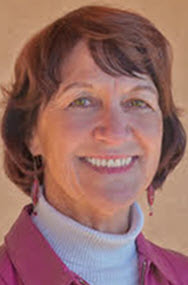 By Mary McPhail Gray
By Mary McPhail Gray
NVW Board Chair
Once more, hindsight is brilliant! The number of stories of actions taken by a variety of individuals to communicate concern about Nikolas Cage is too familiar a scenario.
Who is to blame—not enough training of law enforcement? Not enough effective models of whether to keep the case open or not? Not enough citizen skill at describing their concerns and stubbornly following up?
The responses we see are the huge media coverage with the resultant traumatizing of our youth—not just students at Marjorie Stoneman Douglas High School but understandably anywhere in the country. Starting with the 1966 “Tower Shooting” on the University of Texas campus, we have witnessed too many of these events in educational settings. And it makes cruel logical sense—since most mass shooters are intent on harming a great number of people— public settings such as a theatre in Colorado or a school in any town become efficient environments for that deadly goal.
I have written previously about the grief and pain of those “in the know” who saw someone in trouble and failed to report it or say something. This whole idea of reporting needs more examining.
We have a national culture that prizes independence and privacy. Especially in the dominant culture where individual competition and achievement are rewarded—we often ignore or devalue anyone who might be “in trouble” and needing help. And from our president down to other spokespersons, after such a tragedy there is always an immediate cry for more mental health services.
Yet the research shows that individuals with serious mental illnesses commit less than 3 percent of violent crimes and less than 1 percent of gun-related homicides are by individuals with a serious mental health diagnosis. Once the call goes out for more mental health services, we engage in political advocacy around funding for such services and ignore some stark realities. Europe has the same level of mental illness as the United States, yet they have far fewer mass shootings.
Once we declare that all mass shootings are a mental health issue, we see all mental illness as a “danger,” and we discount the value and humanity of those with a need for mental health services. They become suspicious and strange to us.
And our national history in institutionalizing the mentally ill was so marked by violence, lack of treatment, and cruelty that in the 1980s and 1990s we closed almost all mental health institutions. We could not admit that a small number needed skillful, caring, round-the-clock treatment to recover. And we have decimated the ability of community services to meet the current need of those who need some lower level of service.
So when do we report our concerns? Especially youth—who know how cruel and impulsive others may react to their reporting—how do we normalize and support their expressed fears or concerns?
Well, first, we all—as adults in positions to care and listen—need to encourage such reporting as a gift to the family—and to the community. The youth are helping make us all safer. They know what is happening in the schools, in classrooms, and in related organizations. When someone is distressed, they need support and help—not blame and rejection. Mental health practitioners know that the individual most likely to perform some violent act is young, angry and isolated. The youth need us to listen, to believe, to comfort, to refer for services.
Before a youth gets to the point that Nikolas Cage did, the schools need to continue to teach emotional intelligence, social problem solving, coping skills for anger and conflict resolution—and have effective practices to reach law enforcement concerning warning signs and refer such a youth to needed services.
And when youth report on a concern—it is not “snitching”—it is investing in your community’s future. We need to create a safety net in our community for all youth to express compassionate concerns about others.
Nonviolence Works has the largest licensed and credentialed behavioral health staff on northern New Mexico. Reach us at 575-758-4297 or www.nonviolenceworks.us.
Mary McPhail Gray is the board chair of NVW and can be reached at mcphailconsulting@gmail.com or 575-779-3126.

